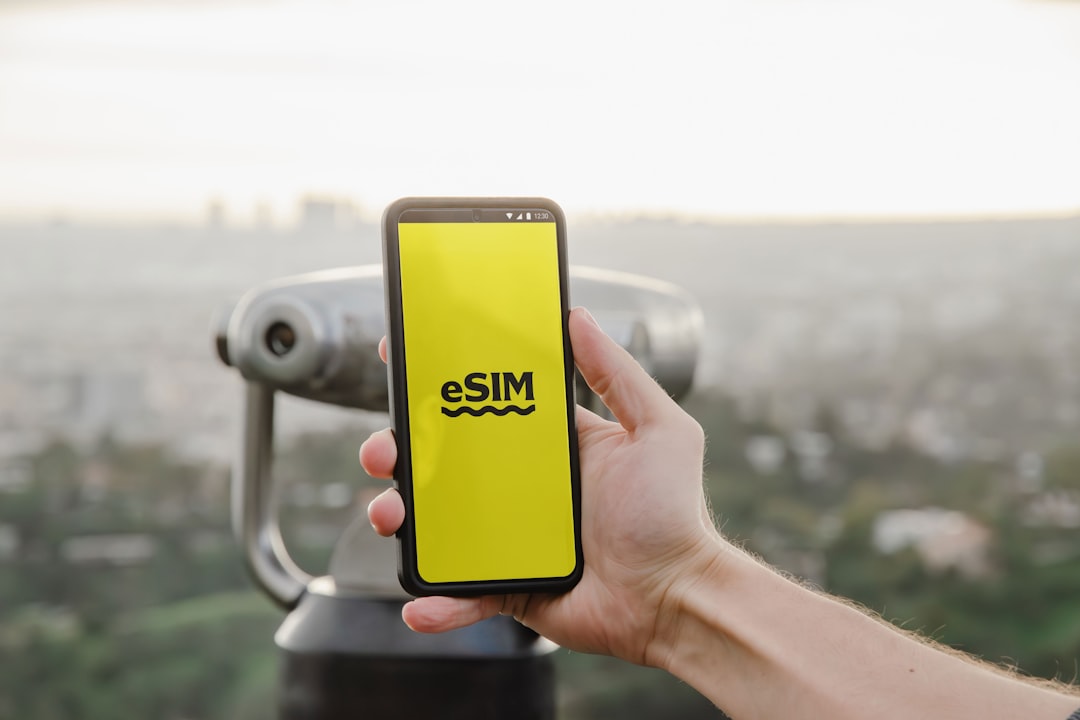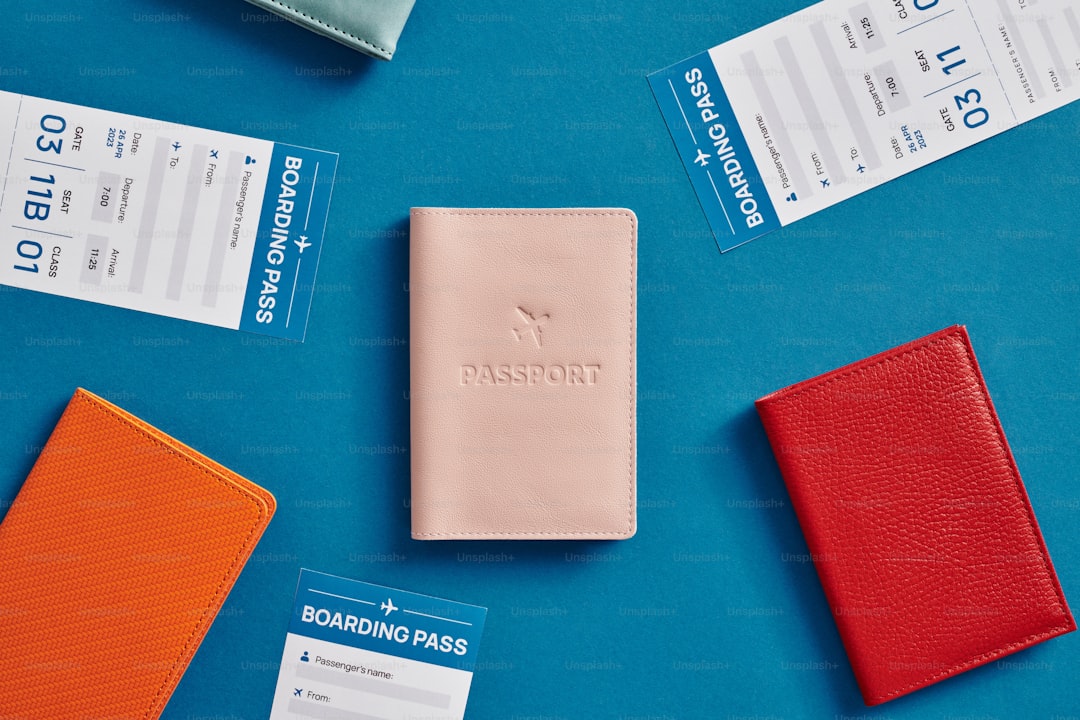Essential Finance Taxes Legal Guidance and Insurance Options for Modern Nomads

Introduction
The modern nomad lives a life that blends work, travel and cultural immersion. Freedom to move from city to city, country to country, and continent to continent brings excitement, but it also creates a complex web of financial, tax, legal and insurance considerations. Without a clear roadmap, a digital wanderer can easily find themselves overpaying taxes, losing access to essential services, or facing unexpected legal hurdles. This guide pulls together the most important finance, tax, legal and insurance topics for today’s location‑independent professionals. It is designed to be practical, actionable and up‑to‑date, giving you the tools you need to stay compliant, protected and financially healthy while you explore the world.
Financial Foundations
Building a Portable Money System
A solid financial base starts with a system that moves with you. The key components are:
- Multi‑currency accounts – Banks or fintech platforms that let you hold, receive and spend in several currencies reduce conversion fees and give you flexibility when you land in a new market.
- Low‑cost international transfers – Services that use the real exchange rate and charge minimal fees are essential for receiving client payments or sending money to family.
- Digital wallets – Mobile wallets that are accepted globally provide a quick way to pay for coffee, transport or online subscriptions without a physical card.
Choose providers that are regulated in stable jurisdictions, have strong security protocols and offer transparent fee structures. Popular options include Wise, Revolut, N26 (where available) and Payoneer.
Emergency Fund and Cash Flow
Living on the road means income can be irregular. A portable emergency fund of three to six months of living expenses, kept in a high‑yield savings account or a short‑term money market fund, protects you from unexpected gaps. Set up automatic transfers from your primary account to your emergency stash whenever you receive a payment.
Budgeting on the Move
Nomadic budgeting differs from a fixed‑location approach. Use a cloud‑based budgeting tool that syncs across devices and supports multiple currencies. Track three core categories:
- Living costs – Accommodation, food, transport and local utilities.
- Business costs – Software subscriptions, coworking spaces, equipment depreciation.
- Travel and visa expenses – Flights, insurance premiums, visa fees and consular services.
Review your budget weekly to adjust for seasonal cost changes, such as higher accommodation rates in peak tourist months.
Banking on the Move
Choosing the Right Banking Partner
Traditional banks often charge high foreign transaction fees and may block accounts if they detect irregular international activity. Fintech banks designed for travelers solve many of these issues. When evaluating a provider, consider:
- Regulatory coverage – Is the bank licensed in an EU country, the UK, the US or another strong jurisdiction?
- ATM fee network – Look for partners that reimburse ATM fees worldwide or have a large network of fee‑free machines.
- Card replacement policy – In case a card is lost abroad, a quick replacement and fast delivery are crucial.
Protecting Your Accounts
- Two‑factor authentication – Use an authenticator app rather than SMS where possible.
- Separate personal and business accounts – This simplifies bookkeeping and reduces the risk of mixing funds.
- Regular account monitoring – Set up real‑time alerts for large transactions and login attempts.
Managing Currency Exchange
Avoid “double conversion” where you convert from your home currency to a second currency before paying in a third. Instead, keep a core holding in USD or EUR (the most widely accepted currencies) and convert to the local currency only when needed. Use platforms that lock in exchange rates for a short period if you anticipate a large payment.
Managing Currency and Payments
Invoicing Clients Globally
- Invoice in your client’s currency – This removes the burden of conversion from them and often speeds up payment.
- Include your preferred payment method – Bank transfer, PayPal, Stripe, Wise or crypto, depending on what your client is comfortable with.
- Add a clear payment terms clause – Net 30, late fee policy and any tax identification numbers required for cross‑border transactions.
Receiving Payments While Traveling
- Virtual IBANs – Some fintech platforms provide a virtual International Bank Account Number that can receive SWIFT transfers without needing a local branch.
- Local bank details – If you spend an extended period in a country, opening a local account can lower fees for domestic payments.
Handling Tax Withholding
Some countries require a withholding tax on payments to foreign service providers. Verify whether your client needs to withhold a percentage and how you can claim a credit on your home‑country tax return.
Tax Essentials for Nomads
Tax compliance is often the most intimidating part of a nomadic lifestyle. The good news is that most digital nomads can keep their tax obligations manageable with a clear plan.
Determining Tax Residency
Tax residency is usually based on:
- Physical presence – The number of days spent in a country during a tax year.
- Center of vital interests – Where your family, economic ties and primary home are located.
Many countries use a 183‑day rule, but some have lower thresholds or “tax haven” criteria. It is vital to track the exact number of days you spend in each jurisdiction.
Home Country Tax Obligations
If you retain citizenship and a permanent home in your original country, you may still be liable for tax on worldwide income. Common scenarios:
- United States citizens – Must file an annual return and report foreign income, regardless of residence.
- United Kingdom residents – Tax on worldwide income if you are a UK resident for tax purposes; otherwise, only UK‑source income is taxable.
Take advantage of foreign earned income exclusions, foreign tax credits and treaty benefits where applicable.
Host Country Tax Rules
Even a short stay can trigger tax filing requirements if you earn income locally. Check each country’s:
- Threshold for taxable presence – Some nations tax foreign earners after a low number of days.
- Self‑employment registration – You may need to register as a freelancer or obtain a local tax number.
If you are unsure, consult a local tax professional early in your stay.
Double Tax Treaties
Many countries have agreements that prevent the same income from being taxed twice. A treaty will typically:
- Define which country has the primary right to tax certain types of income.
- Provide mechanisms for tax credits or exemptions.
Identify whether a treaty exists between your home country and the host nation. When filing, attach the appropriate treaty claim forms to avoid double taxation.
Filing Deadlines and Extensions
Each jurisdiction has its own filing calendar. Some countries allow automatic extensions for non‑residents; others require a formal request. Keep a master calendar with all relevant deadlines, and set reminders at least 30 days before each due date.
Legal Residency and Visa Management
Choosing the Right Visa
Nomads often rely on one of three visa categories:
- Tourist visas – Short‑term stays, typically up to 90 days, but usually do not allow work.
- Digital nomad visas – Newer programs that specifically permit remote work for foreign employers while residing in the country.
- Long‑term residence permits – For those planning to stay more than a year, often requiring proof of income, health insurance and a local address.
Research each country’s specific requirements, such as minimum monthly income thresholds, health insurance coverage and background checks.
Maintaining Legal Status
- Track expiration dates – Use a spreadsheet or a dedicated visa‑tracking app.
- Plan extensions early – Many countries require an application 30 days before the current visa expires.
- Avoid overstay penalties – Overstaying can lead to fines, bans or difficulties obtaining future visas.
Managing Multiple Stays
If you move frequently, consider a “visa hub” strategy: base yourself in a country with a long‑term visa (e.g., Portugal, Mexico, Georgia) and use neighboring nations for short trips. This reduces the administrative load and often provides tax benefits.
Business Structures for Nomads
Sole Proprietorship vs. LLC vs. International Entity
- Sole proprietorship – Simple, low cost, but offers no liability protection. Suitable for freelancers with low risk.
- Limited Liability Company (LLC) – Provides personal asset protection, flexible tax treatment, and is widely recognized. Many nomads register an LLC in the United States, the United Kingdom or Estonia.
- International Business Company (IBC) – Often used for tax efficiency, but may raise compliance concerns in home jurisdictions.
Select a structure based on your risk profile, client base and tax residency.
Incorporating Abroad
Countries such as Estonia (e‑Residency), Singapore and Hong Kong offer fast online incorporation, low corporate tax rates and reputable banking ecosystems. Steps typically include:
- Choose a company name and verify availability.
- Submit incorporation documents online, often with a digital signature.
- Open a corporate bank account, which may require a video verification call.
- Register for any necessary taxes (VAT, corporate income tax).
Accounting and Reporting
- Cloud accounting software – Xero, QuickBooks Online and Zoho Books sync across devices and support multiple currencies.
- Automated receipt capture – Use a mobile app to photograph receipts; the software extracts data and categorizes expenses.
- Quarterly tax estimates – If you owe tax in your home country, make quarterly payments to avoid penalties.
Insurance Overview
Insurance is the safety net that lets you focus on work and adventure rather than worrying about unexpected events. For nomads, the most critical coverages are health, travel, liability, and asset protection.
Core Principles
- Coverage must be portable – Policies should not be tied to a single country of residence.
- Understand exclusions – Many plans exclude high‑risk activities, pre‑existing conditions or coverage in certain regions.
- Combine policies when cost‑effective – Some insurers bundle health, travel and personal liability into a single plan.
Health Insurance Options
International Health Plans
These are purpose‑built for expatriates and long‑term travelers. Key features:
- Global network of doctors and hospitals – Direct billing in many countries.
- Coverage for routine and emergency care – Includes hospitalisation, outpatient visits, maternity and mental health.
- Repatriation and evacuation – Critical in regions with limited medical infrastructure.
Well‑known providers include Cigna Global, Allianz Care, Bupa Global and GeoBlue.
Choosing the Right Plan
- Assess your health needs – Chronic conditions may require a plan that covers ongoing medication.
- Check regional exclusions – Some policies exclude coverage in the United States or specific high‑risk countries.
- Evaluate deductibles and co‑pays – Higher deductibles lower premiums but increase out‑of‑pocket costs.
Short‑Term Travel Medical Insurance
For stays under three months, a travel medical policy can be more affordable. Look for:
- High maximum benefit limits – At least USD 100,000 for medical emergencies.
- Trip interruption coverage – Reimburses non‑refundable travel costs if you must cut a trip short due to illness.
Providers such as World Nomads, SafetyWing and Travelex offer flexible short‑term plans.
Supplemental Coverage
- Dental and vision – Often not included in standard health plans, but can be added for an extra premium.
- Critical illness riders – Provide lump‑sum payments for diagnoses such as cancer or heart attack.
Travel Insurance Options
Travel insurance protects against a wide range of trip‑related risks. While health coverage is the core, other components are equally important.
Trip Cancellation and Interruption
If you need to cancel a flight or accommodation due to an unexpected event, this coverage reimburses prepaid, non‑refundable expenses. Look for policies that:
- Cover a broad range of reasons, including work‑related cancellations.
- Offer a “cancel for any reason” upgrade for added flexibility.
Baggage and Personal Effects
Nomads often travel with valuable equipment – laptops, cameras, drones. Choose a policy that:
- Provides a high per‑item limit for electronics.
- Covers loss, theft and damage worldwide.
Emergency Evacuation and Repatriation
In a medical emergency, you may need to be airlifted to a facility with appropriate care. This coverage can be extremely expensive if not pre‑arranged, so ensure your policy includes:
- Full cost of evacuation flights.
- Transfer to your home country if medically required.
Adventure and Activity Coverage
If you enjoy surfing, hiking, climbing or other high‑risk sports, verify that the policy explicitly includes those activities. Some insurers require an additional rider for extreme sports.
Property and Asset Protection
Home Base and Storage
Even nomads often keep a primary residence or storage unit for belongings that travel poorly. Protect these assets with:
- Contents insurance – Covers loss or damage to items stored at your home base.
- Landlord insurance – If you rent out your permanent address while abroad, this covers liability and property damage.
Business Liability
Freelancers and remote consultants should consider professional indemnity insurance, especially when providing advice or services that could lead to client losses. This coverage:
- Pays legal costs and damages if a client sues for negligence.
- Is often required by larger corporate clients.
Cybersecurity and Data Loss
Digital nomads rely heavily on laptops, smartphones and cloud services. While not a traditional insurance line, many insurers now offer cyber‑risk policies that cover:
- Data breach response costs.
- Liability for client data exposure.
- Ransomware recovery expenses.
Practical Checklist for the Modern Nomad
- Open a multi‑currency account and link it to a low‑fee international transfer service.
- Set up a portable emergency fund in a high‑yield savings account.
- Choose a health insurance plan that covers your home region and the countries you plan to visit.
- Purchase travel insurance that includes evacuation, baggage and activity coverage.
- Determine your tax residency and track days spent in each country.
- Register your business in a jurisdiction that offers liability protection and reasonable tax rates.
- Maintain separate personal and business banking and accounting systems.
- Store copies of all visas, work permits and insurance policies in a secure cloud folder.
- Schedule quarterly tax estimates and keep receipts organized in a digital ledger.
- Review your insurance policies annually and adjust coverage based on changing activities and locations.
Resources and Tools
- Currency and transfer platforms – Wise, Revolut, Payoneer.
- Accounting software – Xero, QuickBooks Online, Zoho Books.
- Visa tracking apps – PassportMate, VisaHQ.
- Health insurance comparison – InternationalHealthInsurance.com, InsureMyTrip.
- Travel insurance comparison – SquareMouth, WorldNomads.com.
- Tax residency calculators – Nomad Tax Guide, ExpatTaxOnline.
- Legal document templates – Docracy, LegalZoom (for contracts and NDAs).
Conclusion
Living as a modern nomad is a rewarding adventure that blends work, culture and personal growth. The freedom to move across borders comes with responsibilities that, when handled thoughtfully, become part of the journey rather than a burden. By establishing a portable financial system, staying on top of tax residency rules, choosing the right legal structure, and securing comprehensive health and travel insurance, you create a resilient foundation for a sustainable nomadic lifestyle.
The world is full of opportunities for those willing to step out of the conventional office. With the guidance provided here, you can focus on what truly matters – exploring new places, building meaningful connections, and delivering your best work from wherever you choose to call home today.
Random Posts

Why Flexible Work Environments Are the Key to Remote Success
Flexible work environments turn remote teams into high-performers by adapting to personal needs, project demands and technology, while coworking hubs provide the connectivity and community essential for success.
1 week ago

How to Choose the Perfect City for Your Nomadic Lifestyle
Learn how to pick the ideal city for your nomadic life by defining your priorities, checking internet, cost, safety and culture, and using a simple step by step checklist to land in a place that fuels work and adventure.
3 weeks ago

Top Resources Every Aspiring Nomad Should Know
Discover the ultimate toolkit for future digital nomads: vetted visa guides, budgeting apps, remote-work platforms, cloud storage tips and gear reviews, all in one concise reference to launch your location-independent life.
1 month ago

Lisbon to Tallinn A Nomad’s Guide to Europe
From sunny Lisbon’s affordable coworking scene to Tallinn’s medieval charm and booming tech hub, this guide maps the perfect nomad route, travel tips and essential info for a smooth, productive European adventure.
1 month ago

Your Complete Bali Visa Guide for Digital Nomads
Your ultimate Bali visa guide for digital nomads: compare visa types, follow easy step-by-step applications, learn how to extend your stay, and start working from paradise with confidence.
2 months ago
Latest Posts

Essential Software Every Remote Professional Should Use
Master remote work with essential tools: instant messaging like Slack, high definition video calls such as Zoom, and asynchronous voice apps. Streamline communication, stay connected and boost productivity.
1 day ago

Mastering Remote Work Productivity for Digital Nomads and Freelancers
Learn proven habits, tools, and tactics that help digital nomads and freelancers stay focused, deliver quality work, and maintain a sustainable lifestyle while traveling the world.
1 day ago

Tech‑Friendly European Towns Perfect for Remote Living
Discover Europe’s best small towns where fast internet, affordable living and vibrant tech communities let you work remotely while soaking up historic charm, lakeside views or mountain air.
1 day ago